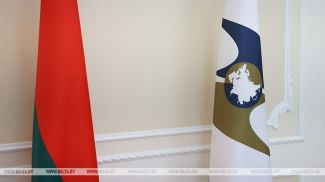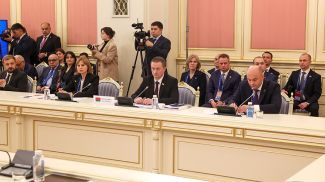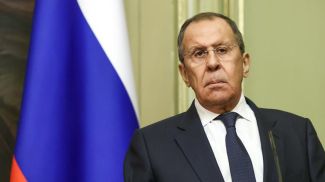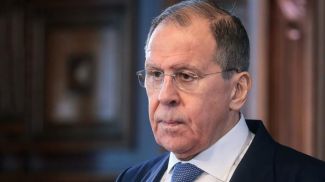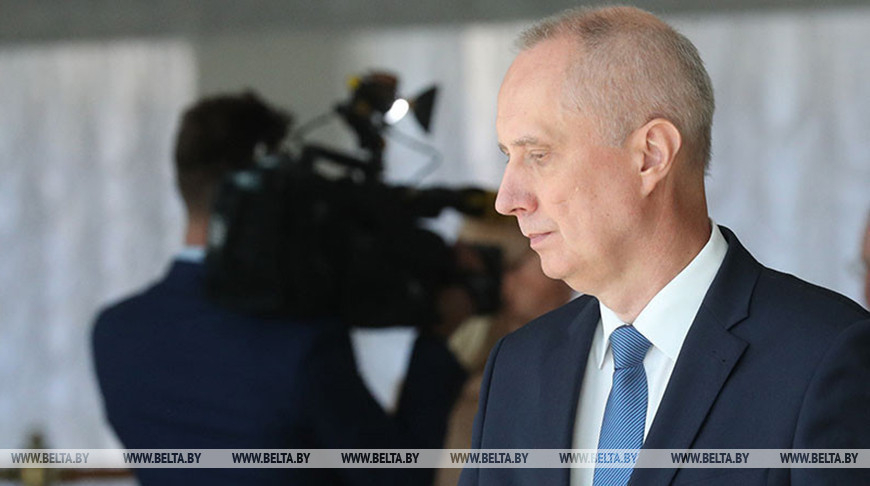
Andrei Dapkiunas. An archive photo
MINSK, 30 October (BelTA) – Belarus’ Permanent Representative to the OSCE Andrei Dapkiunas presented results of the 3rd Minsk International Conference on Eurasian Security at a session of the OSCE Permanent Council in Vienna, Austria, the press service of the Belarusian Ministry of Foreign Affairs told BelTA.
The forum that took place in the Belarusian capital city was dedicated to global world (dis)order and Eurasian security. Andrei Dapkiunas noted that results of the conference had demonstrated the demand for this dialogue platform and the heightened interest in it on the part of Eurasian states.
The Minsk conference brought together ministers, diplomats, and analysts from 48 countries and seven international organizations. Over the course of two days they discussed a wide range of security matters starting with military and political aspects and ending with the fight against transnational challenges and threats such as illegal migration, information security, and economic security.
“We are sincerely glad that the number of those who are ready for dialogue and care about our future is steadily growing,” the diplomat said. “Results of the discussion on economic prospects of Eurasia showed that this region is becoming not just space where geoeconomic interests intersect, but also an arena for the formation of a new architecture of global economic interaction. Participants of the conference agreed that the future belongs to a new type of globalization, one that is decentralized and based on equal dialogue and mutual respect.”
Belarus’ permanent representative to the OSCE added that it remains to be seen whether the new system of global governance will be the result of reforming the existing institutions or will require the creation of fundamentally new mechanisms. However, in his words, one thing is clear: the process of globalization continues and regional integration centers are becoming its driving force.
“We appreciate that the conference provided a platform for open and professional dialogue and communication between hundreds of experts representing their countries and various think tanks. We hope that in the end Eurasian countries will be able to form common indivisible security space,” Andrei Dapkiunas said. “The conference provided an opportunity to take a step forward in overcoming confrontation and finding joint political solutions for Europe and Asia. We hope that next year we will see even more people in Minsk, who are ready for dialogue about topical security matters and who care about our common future.”





